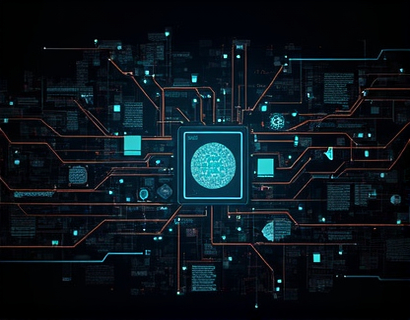Cryptocurrency Security: Tailored Elite Defense for HNWIs, Celebrities, and Entrepreneurs in the Digital Age
In the rapidly evolving digital landscape, high-net-worth individuals, celebrities, and cryptocurrency professionals face unique and sophisticated cyber threats. The rise of cryptocurrencies has opened new avenues for wealth storage and transaction, but it has also attracted malicious actors who seek to exploit vulnerabilities in digital assets and personal data. This article delves into the critical importance of elite cybersecurity tailored specifically for these high-risk groups, focusing on advanced defense strategies and operational security measures to ensure the protection of their digital assets and personal information.
Understanding the Threat Landscape
The cryptocurrency sector is a prime target for cybercriminals due to the high value and relative anonymity of digital assets. Hacking, phishing, ransomware, and DDoS attacks are just a few of the threats that can compromise the security of cryptocurrency holdings and personal data. For HNWIs, celebrities, and entrepreneurs, the stakes are even higher, as their wealth and public status make them prime targets. Understanding this threat landscape is the first step in developing a robust cybersecurity strategy.
Advanced Defense Strategies for Cryptocurrency Assets
To effectively protect cryptocurrency assets, a multi-layered defense approach is essential. This includes implementing cold storage solutions, such as hardware wallets and paper wallets, which keep the majority of digital assets offline and thus less vulnerable to online attacks. Additionally, using multi-signature wallets adds an extra layer of security by requiring multiple approvals for transactions, making it harder for unauthorized access.
Another critical strategy is the use of decentralized finance (DeFi) protocols with enhanced security features. These protocols often incorporate advanced cryptographic techniques and smart contracts designed to minimize risks. Regular audits of smart contracts and DeFi platforms can help identify and mitigate potential vulnerabilities before they are exploited.
Operational Security Measures for Personal Data
Protecting personal data is equally important for HNWIs, celebrities, and entrepreneurs. Operational security measures involve a combination of technical, administrative, and physical controls to safeguard sensitive information. This includes implementing strong password policies, using multi-factor authentication (MFA) for all accounts, and regularly updating software to patch known vulnerabilities.
Data encryption is another fundamental aspect of operational security. Encrypting data both at rest and in transit ensures that even if data is intercepted or accessed unauthorized, it remains unreadable without the proper decryption keys. Employing end-to-end encryption for communications, especially when discussing sensitive financial or personal matters, is crucial.
Cybersecurity Expertise and Customized Solutions
Given the complexity of cybersecurity threats, it is essential for high-risk individuals to engage cybersecurity experts who specialize in tailored solutions for HNWIs, celebrities, and cryptocurrency professionals. These experts can conduct thorough risk assessments to identify specific vulnerabilities and develop customized security plans. Regular security training and awareness programs for staff and family members are also vital components of a comprehensive security strategy.
Continuous monitoring and incident response planning are key to detecting and mitigating threats in real-time. Advanced threat detection systems and security information and event management (SIEM) tools can provide early warnings of potential breaches, allowing for swift action to be taken. Having a well-defined incident response plan ensures that all parties know their roles and responsibilities in the event of a security incident.
Reputation Management and Privacy Considerations
For celebrities and public figures, cybersecurity extends beyond just protecting assets and data. Reputation management and maintaining privacy are critical aspects that can be severely impacted by a security breach. Implementing robust privacy controls, such as using pseudonyms or anonymous wallets for certain transactions, can help minimize exposure. Additionally, working with public relations experts to manage any fallout from a security incident is essential to preserving reputation and public trust.
For entrepreneurs and business leaders, protecting trade secrets and intellectual property is paramount. This involves not only securing digital assets but also implementing strict access controls and monitoring for insider threats. Regular audits and background checks for employees with access to sensitive information can help prevent data leaks and unauthorized disclosures.
Case Studies and Real-World Applications
To illustrate the importance of elite cybersecurity for high-risk individuals, consider the case of a prominent cryptocurrency entrepreneur who experienced a significant loss due to a phishing attack. By implementing a tailored cybersecurity solution that included advanced email filtering, MFA for all accounts, and regular security training for the team, the entrepreneur was able to prevent similar incidents in the future. The customized security plan also included real-time monitoring and rapid response protocols, which detected and neutralized a subsequent ransomware attempt before any damage was done.
Another example involves a high-net-worth individual who used a multi-signature wallet and cold storage solutions to protect their cryptocurrency holdings. Despite being targeted by a sophisticated hacking group, the combination of these security measures ensured that the attacker was unable to gain access to the assets. The individual also benefited from continuous monitoring and threat intelligence services, which provided early warnings of potential threats and allowed for proactive measures to be taken.
Future Trends in Cryptocurrency Security
The landscape of cryptocurrency security is continually evolving, with new technologies and threats emerging regularly. One promising development is the integration of blockchain-based security solutions, which leverage the inherent transparency and immutability of blockchain to enhance security. Self-sovereign identity solutions, for instance, can provide individuals with greater control over their personal data and digital identities.
Quantum computing poses both challenges and opportunities for cybersecurity. While quantum computers have the potential to break current cryptographic algorithms, they also pave the way for quantum-resistant encryption methods. Staying ahead of these trends and adapting security strategies accordingly is crucial for maintaining robust protection.
Conclusion
For HNWIs, celebrities, and cryptocurrency professionals, the stakes of cybersecurity are incredibly high. By adopting advanced defense strategies and operational security measures, these individuals can significantly reduce the risk of cyber threats and protect their digital assets and personal data. Collaborating with cybersecurity experts to develop customized solutions and staying informed about the latest trends and technologies are essential steps in ensuring long-term security in the digital age.










































